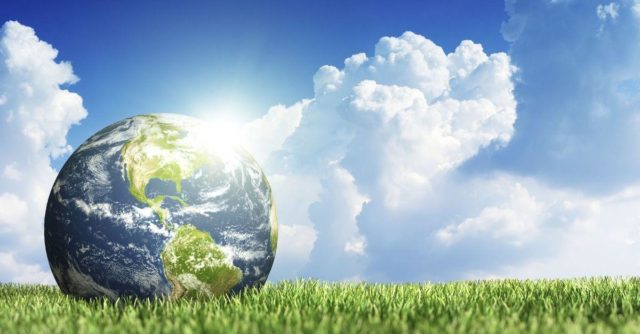By Doron Pe’er, Deputy Chief of Israeli Mission to Azerbaijan
The coronavirus pandemic has presented us with one of the most acute challenges of our generation. It has also, however, presented us with a unique opportunity to pursue economic recovery programs following the pandemic that incorporate strong sustainability and low-carbon measures. The world could effectively use the exit from COVID-19 to accelerate a green transition, and the commemoration of this year’s Earth Day has thus taken on an even deeper meaning.
For over a decade, the UN Environment Programme has produced an “Emissions Gap Report” that analyzes the disparity between where greenhouse gas emissions should be by 2030, and where they are actually predicted to be. The 2020 report found that, despite a “brief dip” in greenhouse gas emissions caused by the pandemic’s broad economic slowdown, the world is still headed towards a temperature rise of over 3 degrees this century, well above the goal of 1.5 degrees set out in the Paris Agreement.
In fact, there is a direct link between environmental crises, climate change, and the novel coronavirus. Experts have found that global warming has led to the emergence of new infectious zoonotic diseases such as COVID-19, meaning that our current global pandemic is most probably tied to the grim environmental situation of our planet.
This fact should serve as a strong and urgent call to action for all of us.
When it comes to climate innovation and sustainability, Israel can serve both as an example and as a provider of solutions to global problems. The country’s arid and water scarce conditions, combined with its entrepreneurial and problem-solving spirit, have made Israel a leader in the field of environmental innovation. Drip irrigation and the development of resistant, fortified crops are world-renowned and highly sought after technologies that were actually originally developed in Israel.
The country is also at the forefront of one of the world’s latest trends in sustainability: animal protein replacements. Innovative Israeli companies have successfully produced lab-grown protein that is almost indistinguishable from high-quality meat, and have even grown real meat from animal cells in a lab.
Israel also happens to be a global water powerhouse. The country holds the world record for water reuse, recycling almost 90% of its wastewater for use in agriculture. It also has one of the most unique national water systems in the world, with some 80 percent of its drinking water being desalinated saltwater.
Over a century of experience in reforestation have also made Israel a leader in the reforestation of semi-arid areas, expertise that will only grow in value as large-scale tree planting and other nature-based solutions become ever more prevalent as methods of mitigating against the effects of climate change.
The Israeli embassy in Baku commemorates Earth Day and is proud to launch a global campaign to mark highlighting the many innovative and cutting-edge solutions that Israel has provided to global problems.
We plan on assisting in opening a community garden, a series of online sort videos on water management for the industrial and agricultural sectors, assist in shaping up to date and sustainable new biology and courses and training and holding panels on Israeli solutions for sustainably recovering from the coronavirus pandemic. We are always open for further suggestion, by the way…
Israel has an exceptional set of assets that mean it is well-placed to make a unique contribution for a good friend, when it comes to pursuing green recovery programs from COVID-19. Its cutting-edge technologies and decades of practical experience were all borne of the demanding environmental challenges that Israel faced from the very outset of its statehood, and the solutions it developed to meet those challenges could now serve Azerbaijan as well.
With all of the hardships that the coronavirus pandemic has inflicted upon us, it has also provided us with a unique opportunity to change our ways moving forward. Israel is willing to share its experience and know-how with every country in the world; we only have one planet, and we must all work together to protect it.






